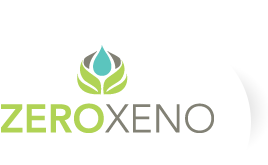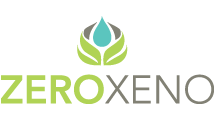Our products are proudly manufactured in Canada and a product of Canada.
What plants are phytoestrogens?
Answer:
Phyo = plant, so a phytoestrogen is a natural plant based estrogen. Xeno = foreign, so a xenoestrogen is a foreign or man-made chemical that acts like estrogen. The two types of estrogens need to be clearly defined, as one is naturally found is plants and the other comes from man-made chemicals. It is interesting to note that scientist are just discovering that phytoestrogen metabolism and activation in the human body correlates with the health of your microbiome (gut bacteria).
To answer your question regarding what plants are phytoestrogens, I have chosen to provide you with links to peer reviewed studies that reveal which plants or their components are considered phytoestrogens. While my list is not exhaustive, it will give you a sense of how nature has provided a wide variety of phytoestrogens for our consumption. Evaluate for yourself what researchers are saying about phytoestrogens and form your own opinon about their benefits.
2018 Study
2017 Study
Foods That Are Phytoestrogens
- Broccoli - Kaempferol
- Carrots
- Grapes & Wine - Resveratrol
- Peanuts - Resveratrol
- Pomegranates
- Flax
- Apples - Quercetin
- Onions - Quercetin
- Licorice
- Peas & Beans
- Chickpeas
- Chocolate
- Wheat Bran
The founder of Zero Xeno, Bonnie Penner and all employees are not medical doctors or trained medical professionals. All advice and information posted on this website is from personal research and/or experience and is intended for general educational purposes. This information is not intended to be a substitute for professional medical advice related to specific medical conditions. We cannot diagnose illnesses nor confirm any claim as to therapeutic safety, effectiveness or course of treatment. Always seek the advice of your physician or other qualified health professionals for any concerns regarding your health. Only your physician can provide specific diagnosis and treatments. Please refer to our full Disclaimer for more details.


